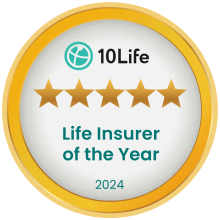For most of our working lives, retirement can feel like a distant dream. But a sudden and unexpected change in the latter stages of your career can mean that, ready or not, your retirement is happening right now.
For whatever reason, the thought of retiring before you had planned to can be dismaying.
But don't panic: You've been getting ready for this your whole working life; it's just the timeline that's moved up a bit. What’s your first step? Gather all your relevant documents and book an appointment with your advisor. By asking a few key questions, your advisor can help you talk through the transition and develop a plan for moving forward.
Based on my retirement savings, how much will I have to live on?
You and your advisor will want to work through your income sources and take a financial inventory. After all, a retirement portfolio is typically made up of many pieces: government benefits, workplace benefits, income from a Qualified Deferred Annuity Plan, part-time income, home equity, etc. In a nutshell, you want to have enough on hand to pay for the lifestyle you choose, while maintaining your ability to draw an unreduced Old Age Security (OAS) pension if you can. But drawing down your savings sooner than expected may mean you’ll have to make some trade-offs.
You'll also want to lay out a plan for what to do with your pension scheme if you have one. If your employer gave you a package to encourage you to retire early, you’ll want to get some advice on that, too. A seasoned advisor can crunch the numbers and show you options to help maximize your retirement income and keep your expenses low.
How does the stock market affect my retirement?
With retirement only weeks or months away, you may be concerned about market volatility and making sure you can hold onto the gains you’ve made in your investments. Your advisor can help you develop a strategy with the level of risk that best suits your situation, since you’ll likely need to start drawing that income sooner than you originally expected.
Your advisor may, for example, suggest a portfolio stress test. This allows you to see in vivid detail what might happen if your investment returns drop during your retirement. Another option if you want to reduce or eliminate exposure to stock market fluctuations is to use part of your retirement savings to buy an annuity. Life annuities give you a guaranteed monthly income for as long as you live, which provides some cushion during market downturns.
How much should I spend in retirement?
Everyone’s vision of the perfect retirement is different. And it will likely take you a bit of time to figure out not only what you really want out of these years, but also how much you will need for your new post-employment lifestyle.
How much retirement income will you need?
Work with your advisor to attach numbers to some of the things you want to do in retirement. That will help you find ways to shift resources around to best serve your new needs and goals.
Do I need to change my will, insurance policies or estate plans?
As we grow older, we need to ensure everything is in place in case of a serious illness or injury. This is especially important if you plan to spend long periods of time out of the country, as many snowbirds like to do. As a rule of thumb, it’s a good idea to review your will, beneficiaries, medical directives and power of attorney approximately every four years, or whenever you have major life changes. But keeping track of all that paperwork can be hard work. Your advisor can help you change the beneficiaries listed on your pensions, insurance policies and investments. See your lawyer to update your will and power of attorney.
What should I be asking my employer?
Your MPF scheme is likely an integral part of your retirement financial strategy. But it’s wise to think beyond those assets. Some employers offer their retirees extended medical and dental benefits, or an option to keep workplace life insurance, especially in the case of loss of employment due to downsizing.
Successfully funding your retirement isn’t about checking boxes on a standardized list. It’s about going on a quest to understand what you have, what you want and the various rules and regulations that frame your options. While you may not have expected to begin the process so soon, you can develop a plan of action with the help of your advisor. The sooner you ask the right questions, the sooner you can get answers and turn that valuable information to your advantage in retirement.
Talk to your Sun Life Advisor to learn more
February 27, 2019, Retiring Unexpectedly? Here’s how your advisor can help [Web page]. Retrieved from Canada Sun Life Corporate Website read the article
Information provided above is for reference only, please refer to the Conditions of Use of this site.





